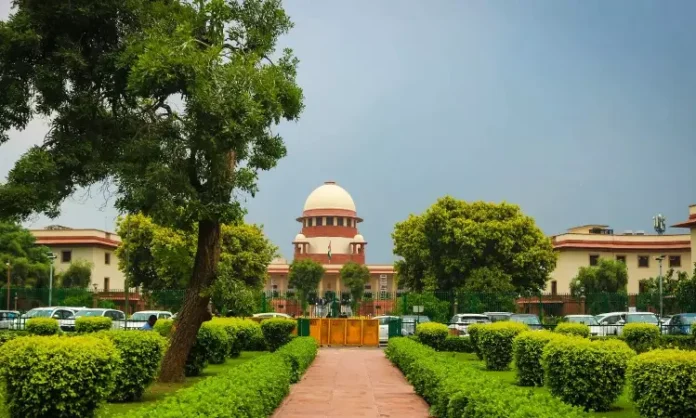The Supreme Court has issued a notice regarding a Writ Petition filed by the Association of Healthcare Providers (India) (AHPI), a non-profit representing the healthcare industry. The petition challenges the constitutionality of Rule 9(ii) under the Clinical Establishments (Central Government) Rules, 2012, which allows the government to regulate prices for medical procedures.
Bench Orders Notice and Case Tagging
A Bench comprising Chief Justice DY Chandrachud, Justice JB Pardiwala, and Justice Manoj Misra heard the arguments presented by Senior Advocate Malvika Trivedi, who appeared for the petitioner. After the initial hearing, the Court ordered, “Issue notice and tag along with Writ Petition (C) No. 214/2024.”
Petition’s Challenge to Legislative Authority
The petition, filed by Advocate-on-Record Vagisha Kochar, argues that Rule 9(ii) exceeds the legislative scope of the Clinical Establishments (Registration and Regulation) Act, 2010. The primary contention is that the Act does not authorize price control over medical procedures and is meant to regulate the quality of healthcare services, such as infrastructure and staffing.
The petition claims that by prescribing rates for medical services, the government has overstepped its legislative authority, violating Articles 14 (equality), 19(1)(g) (freedom of trade), and 21 (right to life) of the Indian Constitution.
Limited Geographical Scope of the Act
Another significant point raised by the petition is that the Act does not apply uniformly across India. It applies only to specific states and union territories that have adopted it under Article 252(1) of the Constitution. Therefore, the petition challenges the constitutionality of introducing price control through a rule, arguing that such actions could harm healthcare innovation and result in financial losses for healthcare providers.
Allegations of Overreach by Government
The petition states, “Rule 9 sub-rule (2) of the Act provides for the Central Government to prescribe a range of rates for various medical procedures. This move to introduce price control was not sanctioned by Parliament or any state legislature. It is a well-established principle that rules cannot exceed the scope of the original legislation.”
Concerns Over Impact on Private Healthcare
The petition raises concerns about the potential negative impact of price regulation on private healthcare institutions. It argues that standardizing prices without accounting for procedural differences, expertise, and equipment quality could make many healthcare facilities financially unviable, leading to closures and affecting public health.
Balancing Public Health and Economic Viability
The Association of Healthcare Providers has emphasized the need to strike a balance between public health objectives and the financial sustainability of healthcare providers. The petition calls for a regulatory framework that supports both the quality of care and economic viability, cautioning against measures that could stifle medical innovation.
Cause Title: Association of Healthcare Providers (India) v. Union of India
Case Number: W.P.(C) No. 573/2024, Diary No. 40301/2024


